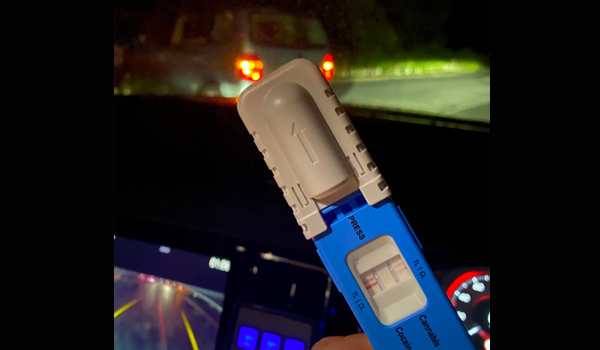Make drink and drug-driving rehabilitation courses ‘compulsory’, says road safety charity
Road safety charity IAM RoadSmart “ strongly believes” that rehabilitation courses should be compulsory for all offenders convicted of drink or drug-driving offences.
It says the Government should adopt this approach “as soon as possible” and not wait for the results of a ‘call for evidence’ on the introduction of new drug-drive courses.
These would form part of a new high-risk offenders scheme for drug-driving and other related issues being proposed by the Department of Transport (DfT) to “modernise its approach” to the problem.
Neil Greig, director of policy and research at IAM RoadSmart, said: “The need to cut reoffending is paramount to ensure the safety of all road users.
“The consultation information clearly demonstrates that driver intervention courses deliver real benefits in the form of reduced reoffending. This is well proven for the Drink Drive Rehabilitation Course, but also for Speed Awareness Courses. IAM RoadSmart are in no doubt that a bespoke drug-driving course will have the same impact.”
Launched in April, the DfT’s call for evidence closes tonight (June 28). It has been seeking views on the creation of a drug-drivers rehabilitation course to help offenders “tackle their issues”.
In her foreword to the consultation, Baroness Vere of Norbiton commented: “These rehabilitation measures work. Non-attendees to the drink-driving courses were over twice as likely to commit a new drink-driving offence within three years. By offering high risk drug-driving offenders the same support, we can hopefully reduce the appalling statistic which sees 44 per cent of drug-driving offences committed by a reoffender.
“Parity in support should also be matched with parity in consequences. Currently, a high-risk offender for drink-driving must reapply for a new licence after their period of disqualification has ended. If we are to keep dangerous drivers off our streets then the same, I believe, should apply for high-risk offenders for drug-driving.”
Mr Greig said rehabilitation courses often provide the first opportunity for offenders to “face up to the impact of their offending and receive positive counselling support in relation to their driving”.
He added: “The course assists them in taking responsibility for their actions to allow them to put plans into place to change their behaviour before they get their driving licence back.
“We share the concerns of other course providers that alcohol and illegal drug offenders are different and feels strongly that a ‘drug-driver only’ course should be developed and not to mix the two offender groups together in any way.
“Whilst there might be some similarities between drink-driving and drug-driving, we are not convinced that mixing two different types of offenders together in the same room is the best way forward.
“IAM RoadSmart strongly believe that rehabilitation courses should be compulsory for all offenders convicted of drink or drug-driving offences.
“The current system where offenders must choose to ‘opt in’ for a course on the day of their court appearance is unfair and unnecessarily stressful.
“Everyone caught ‘under the influence’ should expect a course as well as a fine and a ban. This approach should be adopted as soon as possible and not wait for the Government’s decision on new drug-drive courses.”
The proposed high-risk offender scheme would require clearance at a medical level for drug-drivers to regain their driver’s licence.
The outcome on the consultation will be known in the next few months and IAM RoadSmart said it aims to be “closely involved in the development of a new drug-drive course” that it can then consider as a new product.
IAM RoadSmart already provides driver risk management solutions to businesses, and, through the IAM Driver Retraining Academy, it is one of the largest suppliers of Drink Drive Rehabilitation Courses in England and Wales.
The DfT is also considering what scope there is for changing the way blood samples are taken, as well as seeking evidence on the relationship between medicinal cannabis and road safety to ensure the current legislative framework “remains robust”.
The call for evidence is the first of several steps being taken this year to reduce the problem of drink and drug-driving. There will also be further consultations on other matters in the Road Traffic Acts, such as failing to stop after a collision and criminal use of vehicles.


